Ask Ethan: Do dark energy effects cause loss of information about the universe?

Various versions of the fate of the universe, among which our real version with acceleration is shown on the right
Perhaps the biggest surprise associated with our Universe was waiting for us at the end of the 20th century: then the discovery of dark energy and accelerated expansion was made. The galaxies of the Universe most distant from us are not at all attracted to us due to gravity, but with acceleration they move away from us at ever increasing speeds, and they are destined to disappear from our field of vision. But does this create some form of information paradox? One of our readers asks:
The expansion of the universe means that our horizon of visibility recedes — distant objects disappear behind it from view. From this, it seems, we lose information about the universe. So why the idea of losing information beyond the horizon of a black hole event causes so much controversy if we constantly lose information beyond another horizon?This is a rather multifaceted question, so let's start with the accelerating expansion of the Universe.

After the Big Bang, the Universe was almost perfectly homogeneous, and expanded rapidly, being filled with matter, energy and radiation.
If you want to imagine the early Universe, you will need to draw in your imagination something very different from today's picture. Instead of stars and galaxies separated by vast cosmic distances, where there is practically only emptiness, the young Universe was hot, dense, filled with matter and radiation, and it expanded extremely rapidly. With amazing speed, the Universe became less dense, and on average, all the particles scattered from each other. But over time, this expansion slowed down, and the gravitational effect of matter and energy tried to re-compress the Universe.
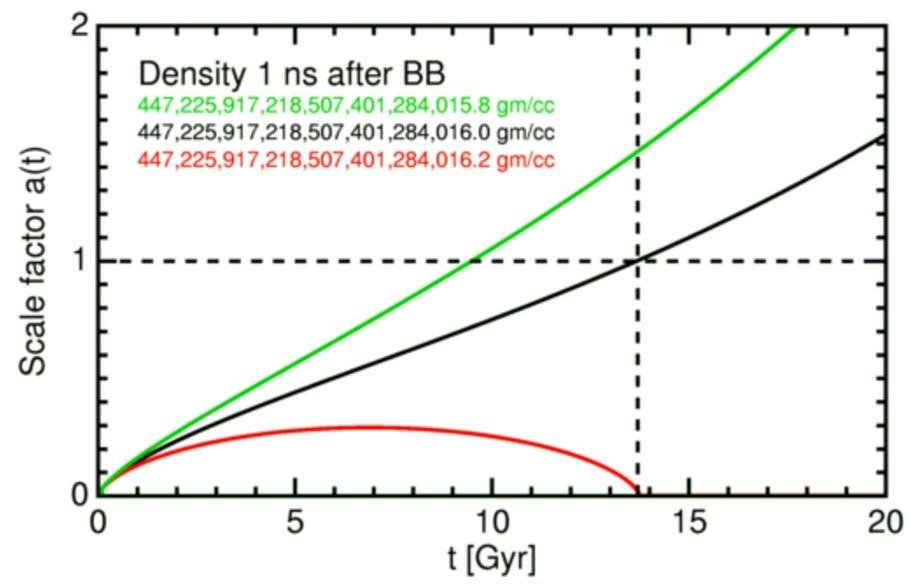
If the universe had only a little more density (red), it would have shrunk back. If it were a little less dense, it would expand faster and become much larger (green).
The race was intense, and if the balance in the Universe was quite a bit disrupted, it could expand, not allowing stars and galaxies to form, or it would shrink back, which would lead to a fantastic Big compression . But none of these features have been implemented. For billions of years, everything looked so that the Universe was almost exactly midway between them, demonstrating a critical case in which it would not expand forever and would not shrink again. Instead, the rate of expansion would asymptotically tend to zero.
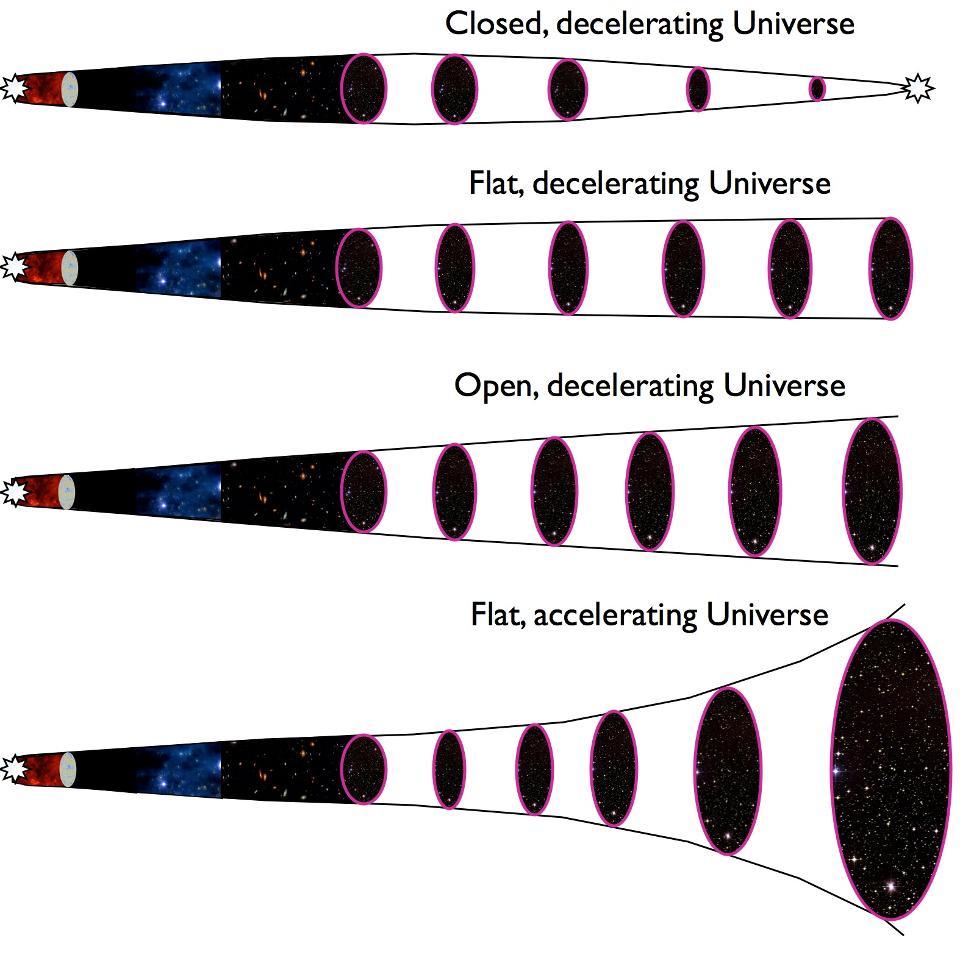
Four possible destinies of the Universe, the lowest example best of all corresponds to our data: Universe with dark energy
But everything changed in the 1990s. After observing remote supernovae and measuring how the universe expanded for billions of years, astronomers discovered something surprising, mysterious and unexpected. After about seven billion years of decreasing expansion rate, when gravity struggled with the pressure initially exerted by the Big Bang, distant galaxies stopped slowing down as they moved away from us. They began to do it quickly, and fly away faster and faster. This accelerated expansion of the universe not only continued after that, but also allowed us to predict the distant future of the distant edges of the universe. And there is nothing good in it.

Observed (yellow) and achievable (purple) parts of the Universe, which are due to the expansion of space and the energy components of the Universe.
Galaxies that are more than 15 billion light-years distant from us are already unattainable for us. The light we emit, now, at 13.8 billion years after the Big Bang, will never reach them, and the light they emit will never reach us. If we examine the entire observable Universe, it turns out that almost 97% of all galaxies in it are already in this position. They will forever remain unattainable for us, even if today went to them with the speed of light.
But does this mean that information disappears? We may not be able to reach these galaxies, but is this the equivalent of losing information about them?

Remote galaxies, such as those in the Hercules galactic cluster, are moving away from us with acceleration. As a result, at some point in time, we will stop receiving their light.
Not really. Over time, the most distant galaxies will disappear in a practical sense, but not in the absolute. Physical galaxies may disappear, but information about them will continue to exist in our Universe. Photons that left a distant galaxy a long time ago, are stretched due to the expansion of the universe. The wavelengths of their waves increase, the energy decreases, and the quantitative density of photons decreases. But over time, information from those distant galaxies continues to arrive to us, and in the distant future, even stars and galaxies will appear, whose light we will be able to see for the first time.
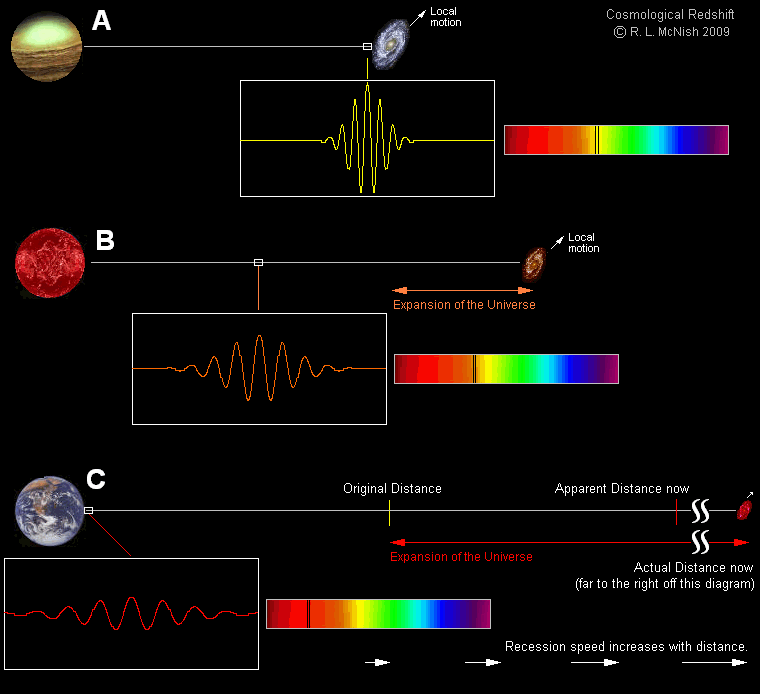
The farther the galaxy, the faster it moves away from us due to expansion, and the more its light is experiencing a red shift.
Information is not destroyed in any way; we just do not get information about these galaxies from some moment. The cosmic horizon is moving away from us, but even when the galaxies leave the space available to us, there is no loss of information that existed before from our point of view. It remains in the Universe, in principle, accessible to a fairly large observatory operating at the correct wavelength. To see it in 100 billion years, you may need a telescope the size of a galaxy - but the information is not going anywhere.
The black hole analogy, by the way, is almost perfect - if it were not for quantum physics, it would have behaved in much the same way as our Universe.
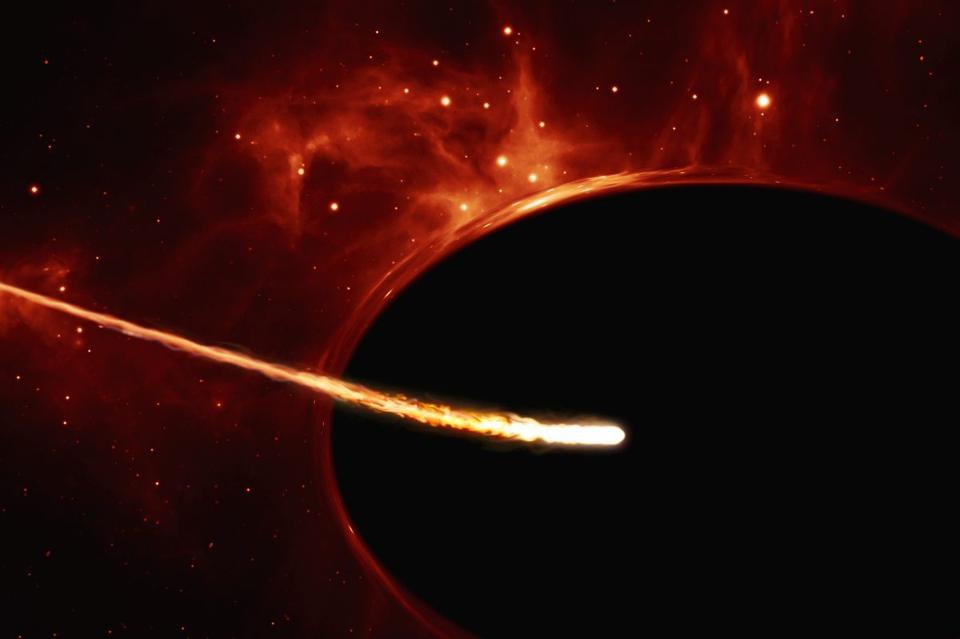
When something falls into a black hole, information is stored on the surface of the event horizon. This is comparable to a galaxy pushed beyond the cosmic horizon, from which nothing happens after that.
Throwing a book into a black hole, you simply add a mass to a black hole, which is why the event horizon grows. But for information this is not a problem; a larger and massive BH contains more information in coded form. In particular, information about the contents of the book - although not in a form from which it can be recovered - is encoded on the horizon of the BH events. From our point of view, when we are outside the BH, the book takes an infinite, asymptotically long time to fall, which means that if we can measure the photons with a red shift caused by gravity long enough, we can not interrupt access to information contained in the book.
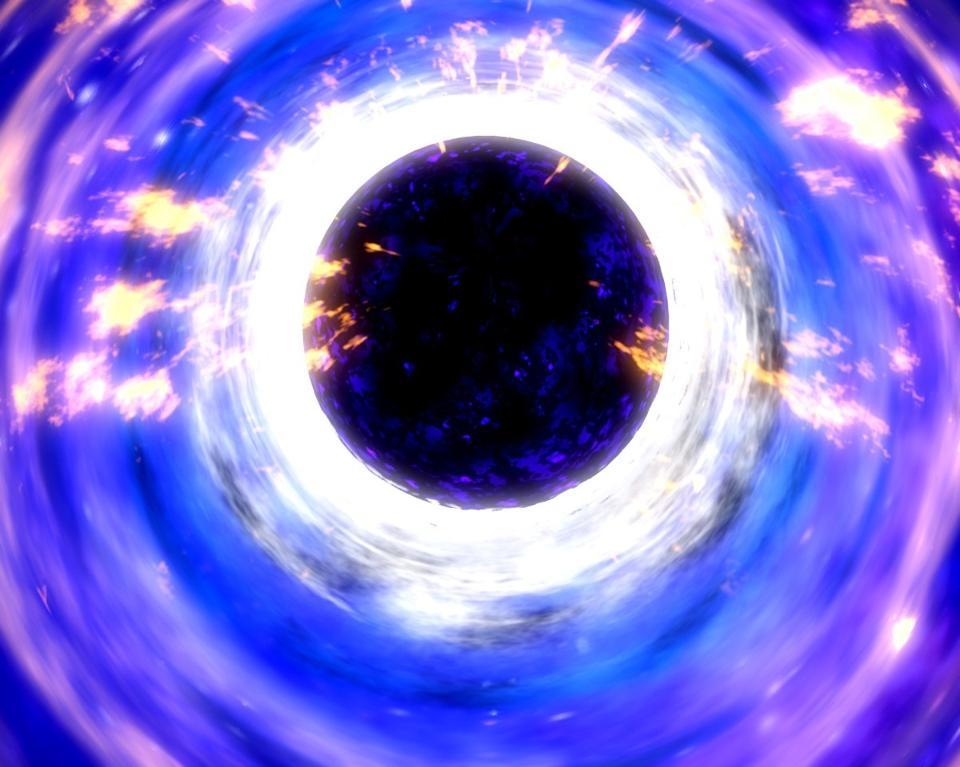
At large time intervals, black holes shrink and evaporate due to Hawking radiation. Then there is a loss of information, because the radiation does not contain information that was once encoded on the event horizon.
The problem with the loss of information occurs only when the BH evaporates. The book contained a certain number of protons, neutrons, electrons, etc. - not to mention the words, sentences and other information - and from the BH simply random radiation of a black body comes out. Particle flow. With the disappearance of the event horizon, information also disappears. As Sabina Hossenfelder emphatically explained, no one knows where the information from the BH goes, and whether it is saved at all.

With the expansion of the Universe, its evolution and acceleration, no information is destroyed due to leaving the horizon, and information imprinted on the cosmic horizon never completely disappears.
But the universe does not evaporate. Distant galaxies disappear, but not destroyed. Information from them becomes inaccessible to us, but only in a practical sense, not in the absolute. The parade will appear only if any new physics shows that our cosmic horizon evaporates. The universe can accelerate; dark energy can become 99.99% dominant over the entire energy of the universe; all galaxies may become inaccessible. But, despite the fact that dark energy is so inexorable and counterintuitive, at least it does not violate the law of conservation of information.
Ethan Siegel - astrophysicist, popularizer of science, blog Starts With A Bang! He wrote the books Beyond The Galaxy , and Treknologiya: Star Trek Science [ Treknology ].
All Articles